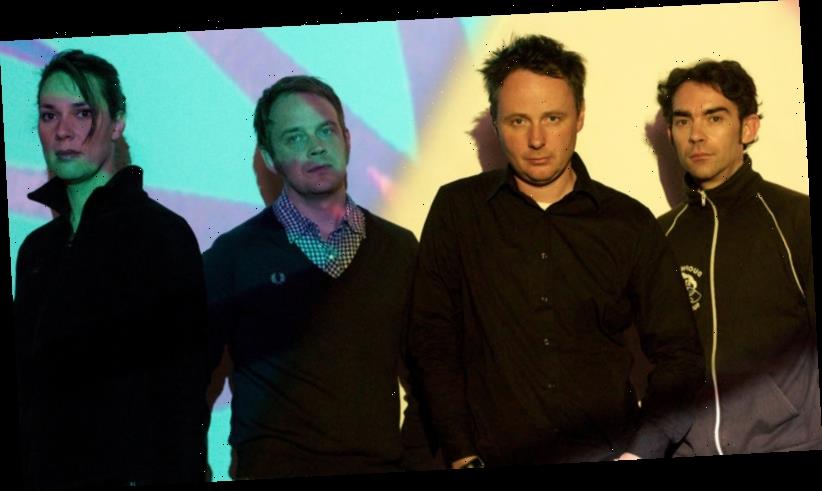When Stereolab last toured Australia, early in 2009 for Laneway Festival, it was almost their swansong. Soon afterwards, the English indie-pop outfit went on indefinite hiatus. It took a decade for them to perform together again.
Stereolab are back on stage and playing festivals afer a decade on the sidelines.Credit:
In 2019, the band’s creative core, the once-married pair of Tim Gane and Laetitia Sadier, were in the midst of remastering their vast back-catalogue –10 albums, seven compilations, singles scattered across the decades – when the perennial calls for a festival-friendly reformation suddenly made sense. “But,” Gane admits, “I didn’t really want to do it.”
The 55-year-old had stayed busy with the project Cavern Of Anti-Matter (including scoring Peter Strickland’s cult horror film In Fabric), and had resisted returning to the past. However, when Stereolab did start playing together again, he found a far stranger temporal phenomenon than mere nostalgia.
“There was this sense of time condensing, like a concertina squashing together,” Gane says. “It was almost like there had been no time between then and the last show we’d played together. I don’t know if that’s good or bad, but it seemed no different.
"It was a very odd feeling, like nothing had changed. Everyone felt that. As soon as Andy Ramsay, our drummer, started playing, it was like everything just locked back into place. It’s strange how that stuff just stays inside you. Muscle memory, I guess they call it.”
Back then, [German krautrock, early electronic stuff] were hard-to-find things I’d been collecting over the years, since I was a teenager.
Stereolab have returned to a musical climate more welcoming of their sound than the time in which they were born. Formed in London in 1990, the band – arch minimalists fond of vintage keyboards and repetitious grooves – were nothing like their contemporaries.
“From the beginning, we were different,” Gane says. “People tried to say that we were related to shoegazing. We got compared to Lush because we had two female singers. But when you actually listened to the music, clearly there was no similarity.”
That difference became their calling-card, Stereolab drawing from things like contemporary composition, easy listening and exotica in a time of loud guitar bands.
“Since then, lots of the things that influenced us – German krautrock stuff, early electronic stuff – has become a lot more well known, a lot more accessible,” Gane says. “Back then, these were hard-to-find things I’d been collecting over the years, since I was a teenager.
"Nowadays, with all that stuff swirling around, where anyone can access it very easily, people are more acclimatised to this kind of sound. In some ways we make much more sense.”
Stereolab (from left) Mary Hansen, Tim Gane, Morgane Lhote, Laetitia Sadier, Richard Harrison in 1997.Credit:
This was, Gane says, something that struck him when going through the process of remastering Stereolab’s back catalogue. When he was listening to B-sides, alternate versions or old demos, Gane felt more like a regular listener than a creator.
“It was odd, because this was something that was coming from me, but there was so much distance that the experience was like I’d never heard it before,” he says.
With these fresh ears, he could identify a band whose music from long ago still sounded fresh, contemporary. “It didn’t sound old-fashioned to me,” Gane says. “It didn’t sound like something from the dusty past.
“Sometimes,” he adds, “you listen to something and think ‘that sounds really dated’. When I listen to all that Britpop stuff that we were supposedly the opposite of back then, it sounds pretty awful to me.
"It didn’t sound very good then either, but now it sounds really dated. I’m happy our music sounds like it’s kept its currency. It doesn’t sound time-specific.''
Stereolab play Melbourne Zoo Twilights on Friday, March 6; Golden Plains on Saturday, March 7; and Factory Theatre in Sydney on Sunday, March 8.
Source: Read Full Article


